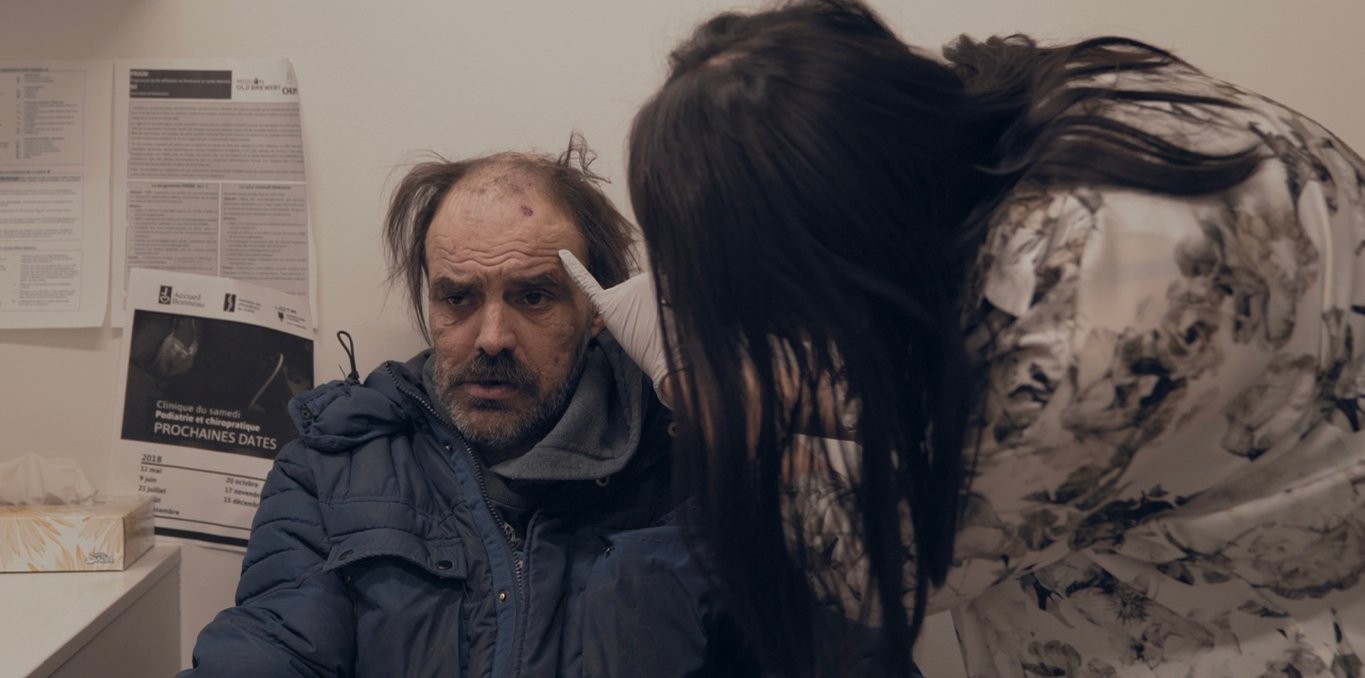Steve Patry

Steve Patry is a documentary filmmaker whose works focus on profound social and human issues. After studying film, he helped found the organization Funambules Médias, through which he directed several socio-political reports. His first feature-length documentary, From prisons to prisons (2014), the result of three years of work, received a special mention from the jury at the Montreal International Documentary Festival (RIDM) and was nominated for the Jutra Award for Best Documentary Feature. His second feature, Waseskun (2017), nominated for Best Documentary Feature at the Canadian Screen Awards, explores the daily life of an alternative detention center for Indigenous men. His third feature, I Might Be Dead by Tomorrow (2020), earned a nomination for Best Documentary Feature at the Gala Québec Cinéma. His latest film, Des chats sauvages, will be released soon.
Related to this realisator

I Might Be Dead by Tomorrow
Patients arrive in the consultation room every day, broken, sick and scarred by life. In front of them sits a committed person who tries, without false hope, to repair bodies and psyches. At night, when the clinic doors are closed, the street outreach workers take to the streets to extend their support to all those unfortunate women who have chosen the streets as their home.

I Might Be Dead by Tomorrow
Subscription access
Patients arrive in the consultation room every day, broken, sick and scarred by life. In front of them sits a committed person who tries, without false hope, to repair bodies and psyches. At night, when the clinic doors are closed, the street outreach workers take to the streets to extend their support to all those unfortunate women who have chosen the streets as their home.

Waseskun
Une plongée au cœur de Waseskun, un établissement de réinsertion pour hommes autochtones au passé criminel. Un regard empathique dénué de naïveté qui décrit sans tabou la complexe reconstruction d’hommes en lutte contre eux-mêmes. À Waseskun, la guérison passe par la spiritualité et par une réappropriation de l’identité et de la culture ancestrale. Une chronique sensible à propos de rescapés de...

I Might Be Dead by Tomorrow
Patients arrive in the consultation room every day, broken, sick and scarred by life. In front of them sits a committed person who tries, without false hope, to repair bodies and psyches. At night, when the clinic doors are closed, the street outreach workers take to the streets to extend their support to all those unfortunate women who have chosen the streets as their home.

I Might Be Dead by Tomorrow
Subscription access
Patients arrive in the consultation room every day, broken, sick and scarred by life. In front of them sits a committed person who tries, without false hope, to repair bodies and psyches. At night, when the clinic doors are closed, the street outreach workers take to the streets to extend their support to all those unfortunate women who have chosen the streets as their home.

Waseskun
Une plongée au cœur de Waseskun, un établissement de réinsertion pour hommes autochtones au passé criminel. Un regard empathique dénué de naïveté qui décrit sans tabou la complexe reconstruction d’hommes en lutte contre eux-mêmes. À Waseskun, la guérison passe par la spiritualité et par une réappropriation de l’identité et de la culture ancestrale. Une chronique sensible à propos de rescapés de...
